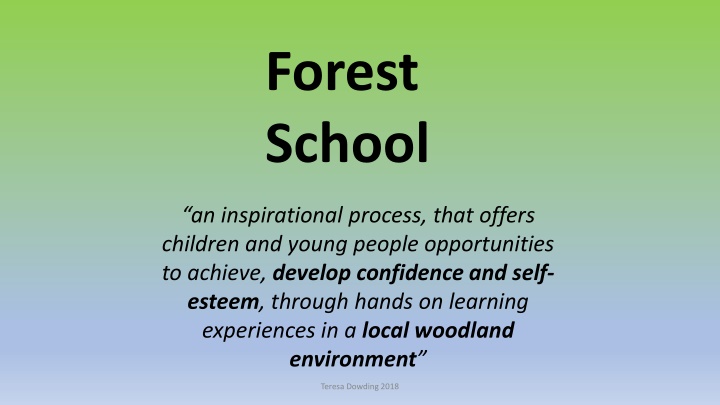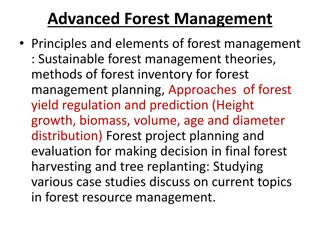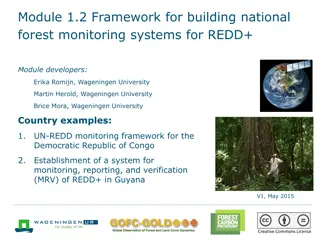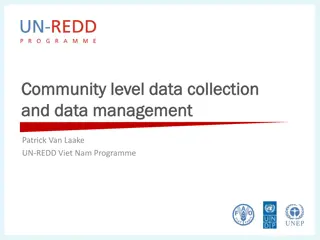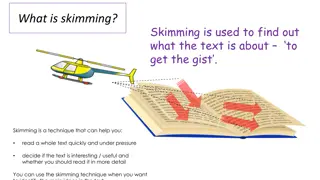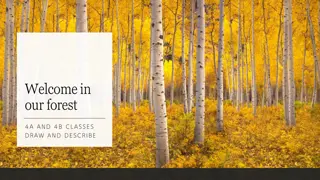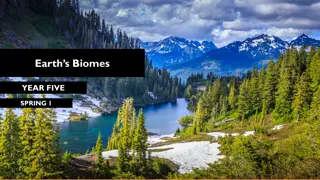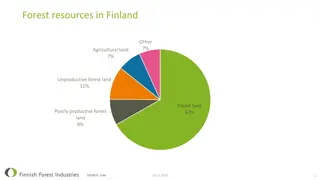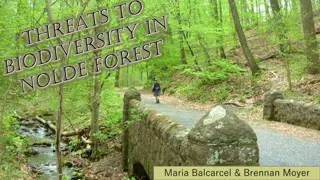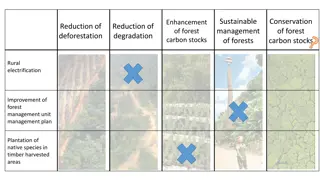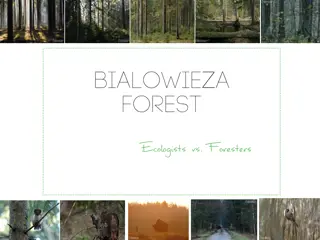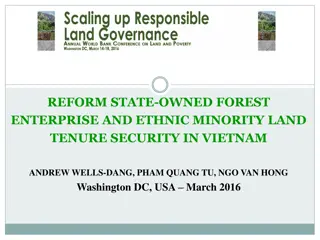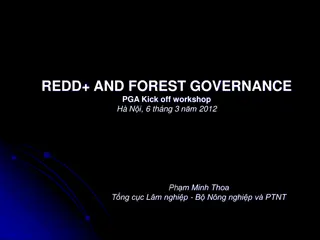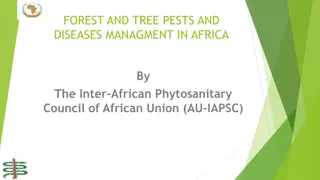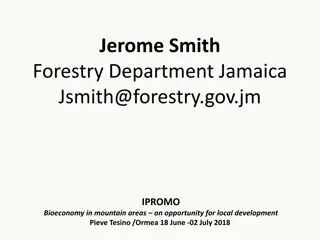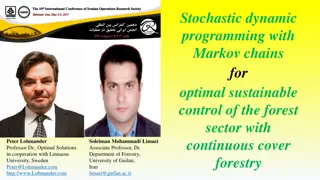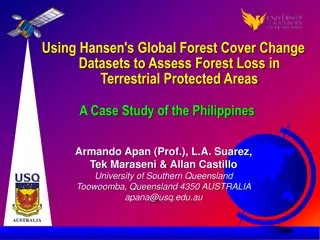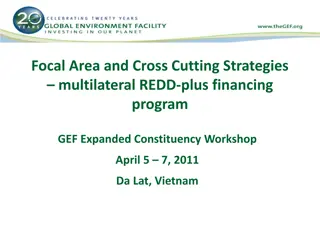Forest School: A Journey of Learning and Development
Forest School is an inspirational process that fosters holistic development through hands-on experiences in woodland settings. Originating in the UK, it follows six principles of good practice, emphasizing regular sessions, learner-centered approaches, and qualified practitioners. Joining a Forest School program involves preparation, suitable clothing, observation, role modeling, and personal development in nature. Various theories and theorists, such as Margaret MacMillan and Carl Rogers, support outdoor learning and self-esteem development.
Download Presentation

Please find below an Image/Link to download the presentation.
The content on the website is provided AS IS for your information and personal use only. It may not be sold, licensed, or shared on other websites without obtaining consent from the author.If you encounter any issues during the download, it is possible that the publisher has removed the file from their server.
You are allowed to download the files provided on this website for personal or commercial use, subject to the condition that they are used lawfully. All files are the property of their respective owners.
The content on the website is provided AS IS for your information and personal use only. It may not be sold, licensed, or shared on other websites without obtaining consent from the author.
E N D
Presentation Transcript
Forest School an inspirational process, that offers children and young people opportunities to achieve, develop confidence and self- esteem, through hands on learning experiences in a local woodland environment Teresa Dowding 2018
Development of Forest School in UK Development of Forest School in UK Within the context of the history of outdoor play in UK (see FSA website) Visit to Denmark in 1993 (EY practitioners from Bridgewater College, Somerset) BTEC qualification developed Training opportunities increased Some county councils supported training of practitioners 2011 National Forest School Association (FSA) established to share good practice and provide networking opportunities. National conference held annually. Development of local groups affiliated to national FSA supporting quality practice and networking and CPD opportunities locally. 2018 FSA conference being run as a family friendly festival for the first time, in Norfolk. All welcome! Teresa Dowding 2018
6 Principles of Good Practice at 6 Principles of Good Practice at Forest School (2011) Forest School (2011) Forest School is a long-term process of frequent and regular sessions in a woodland or natural environment, rather than a one-off visit. Planning, adaptation, observations and reviewing are integral elements of Forest School. Forest School takes place in a woodland or natural wooded environment to support the development of a relationship between the learner and the natural world. Forest School aims to promote the holistic development of all those involved, fostering resilient, confident, independent and creative learners. Forest School offers learners the opportunity to take supported risks appropriate to the environment and to themselves. Forest School is run by qualified Forest School practitioners who continuously maintain and develop their professional practice. Forest School uses a range of learner-centred processes to create a community for development and learning 1) 2) 3) 4) 5) 6) http://www.forestschoolassociation.org/ Teresa Dowding 2018
If you get a chance to be part of a Forest If you get a chance to be part of a Forest School programme School programme 1. Read the handbook and ask questions of the leader beforehand! 2. Wear suitable clothing it s hard to have fun if you re cold and wet! 3. Observe what s happening. Take a step back. Consider whether your intervention/ input is really necessary? 4. Role model play without needing to involve children. But remain aware of what the children are doing! 5. Personal development spend time in nature yourself, notice what s going on around you, develop your senses, consider how it makes you feel, find yourself a sit spot (see Jon Young s coyote mentoring ) Teresa Dowding 2018
Some relevant theories and theorists Some relevant theories and theorists Learning outdoors e.g. Margaret MacMillan, Froebel Self Esteem - Carl Rogers Non-judgmental practice (negative impact of praise) - Alfie Kohn Risk - Tim Gill Vygotsky ZPD Bruner Scaffolding Holistic development various theorists Reggio Emilia Community, creativity, arts Gardener Multiple intelligences Mayor and Salovey / Goleman Emotional intelligence Sara Knight Forest School Play Montessori, Piaget, Froebel, Bruce, Parten Teresa Dowding 2018
